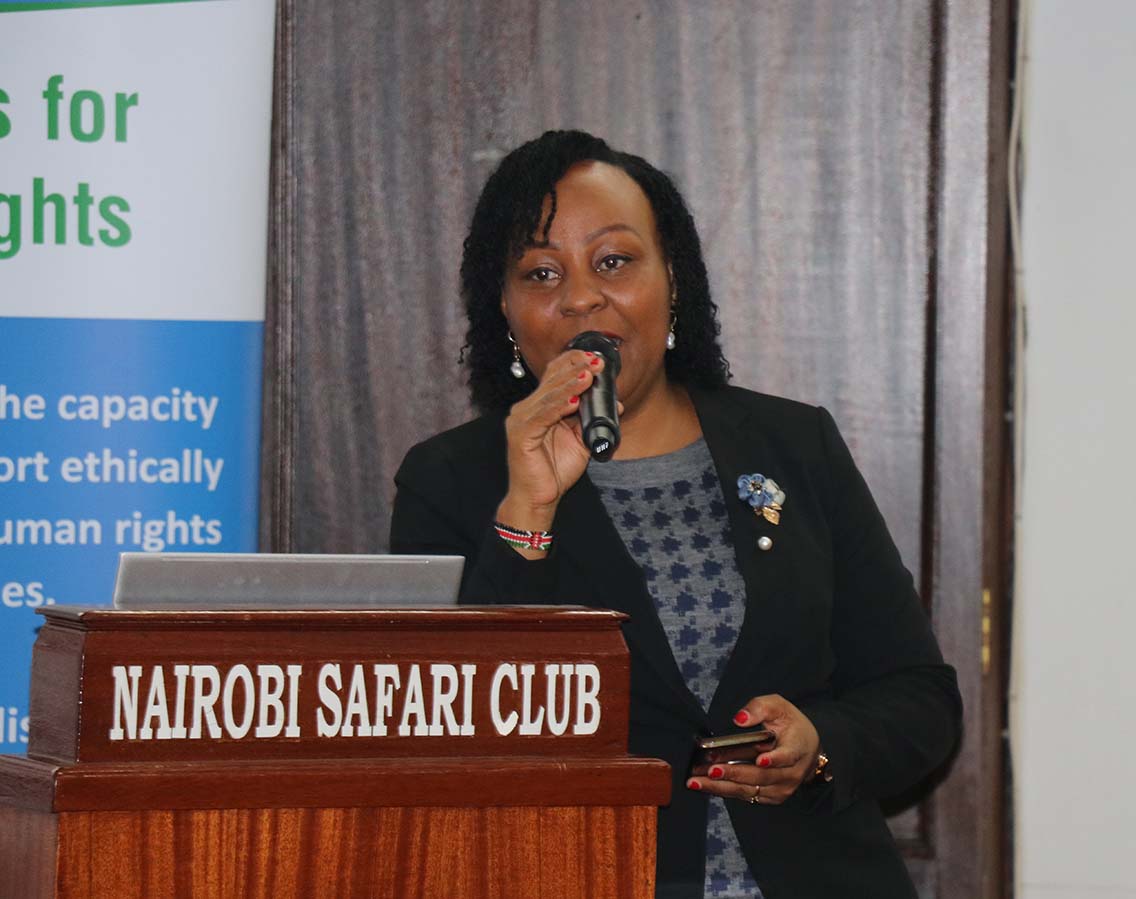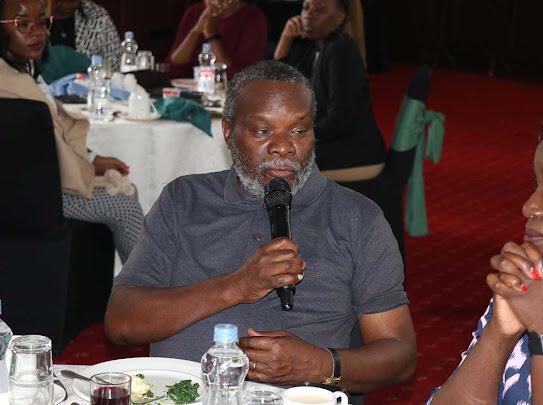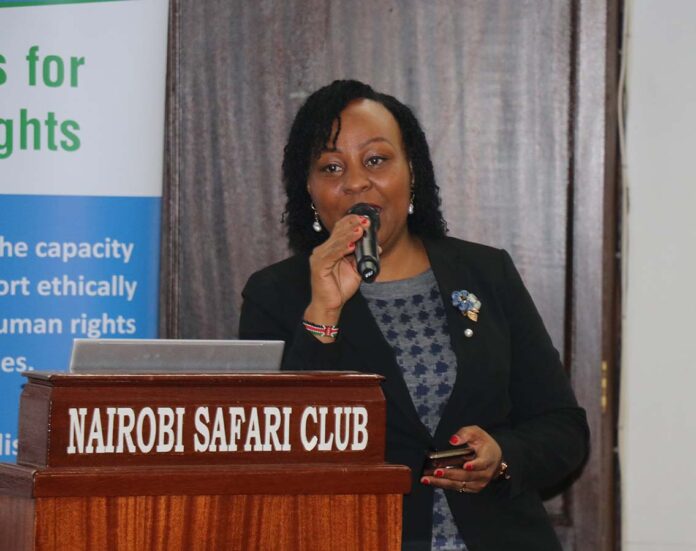By Juliet Akoth
Nairobi, Kenya: The Association of Media Women in Kenya (AMWIK) in collaboration with Journalists for Human Rights (JHR) and other industry players, converged on Monday morning at a hotel in Nairobi to discuss the status of Sexual Harassment (SH) in the Kenyan Media industry.
As a member of the Kenya Media Sector Working Group, AMWIK is mandated to engage various actors in tackling this menace. The group is a coalition of all media stakeholders that was formed in 2017 to speak on and get solutions to emerging issues in the media industry.
In March 2021, the group members met in Maanzoni Lodge and came up with a 13-point statement dubbed the Maanzoni Declaration. One of the issues that was to be addressed by the declaration was sexual harassment in the newsrooms. AMWIK was then mandated to lead a committee on gender in addressing SHR in the media industry. The 18-member committee consisted of individuals who harnessed their experience to bring about the desired change.
Speaking during the event, AMWIK’s Executive Director Patience Nyange noted that the committee has made significant progress in tackling sexual harassment cases through organizing sensitization forums for all journalists and editors, gender notwithstanding, providing psychosocial support for affected journalists, working with media houses in adoption of the SHR policy ( so far nine major newsrooms have adopted it), formulation of strong policies, producing and airing a documentary containing all the relevant information on the topic and publication of a digital safety and security handbook.

However, it has not been a walk in the park with the project being faced with a myriad of challenges. “Many times there’s so much we desire to do to create safe spaces for journalists at work but funding constraints have derailed our plans,” said ED Nyange. Adding that lack of goodwill from industry players has derailed the upscaling of this conversation in many media houses. This lack of goodwill is presumably caused by a lack of awareness that the problem is real because many cases are not reported or some of the aggressors are actually senior management officials.
According to Director for Africa at Women in News and board member at AMWIK, Jane Godia, sexual harassment is unwanted and offensive behaviour of a sexual nature that violates a person’s dignity and makes them feel humiliated and intimidated. She explains, “Sexual harassment is not all about sex though it might eventually come into play, but it’s more of power in the workplace especially if we have the quid pro quo where employment opportunities are being dangled and you are being asked to give in to sex for favours.”
She further underscored that more needs to be done as there are still some big bosses who don’t have a basic understanding of what SH is. Media stakeholders were urged to take advantage of high and low-level places to create awareness on this issue for instance during press freedom celebrations, through direct engagement with the media owners association partners and rallying Human Resources Managers and legal staff as they are responsible in informing policies in organizations and ensuring they are fully utilized.
Representing editors, veteran journalist Macharia Gaitho on his end noted that SH cuts across both genders and that there was a need to focus on highlighting the stories of both women and male journalists. He suggested that this conservation needs to be taken to the public domain.
“So far only a small number of media houses have adopted the model policy, I wish there would be a public forum where we could discuss these policies on SH and bring on board the big media houses where commitment letters could be signed and the public could be given the mandate of ensuring that these companies uphold and implement these policies,” he said.

But what other legal action can a journalist take apart from the protection offered by these policies? “When it comes to the legal viewpoint, to hold your employer liable you must first show that the employer knew or should have known that the sexual harassment was taking place through providing solid evidence,” expounded Kagwiria Mbogori, former chairperson of Kenya National Commission on Human Rights (KNCHR).
Albeit when the complaint is against an executive or senior person, the burden of truth shifts as the employer is deemed to have known. However, sexual harassment cases are better handled by the organization because it is often seen as “too” much action once you seek legal action which might lead to the journalist being laid off.
A representative from the Journalists for Human Rights (JHR) organization expressed that JHR is committed to working and collaborating with other media companies in creating safe spaces and working environments for all journalists. The organization is already partnering with community media stations in awareness creation on the issue at hand and through monitoring the progress of implementation of policies. It’s time to lift the veil of silence.














